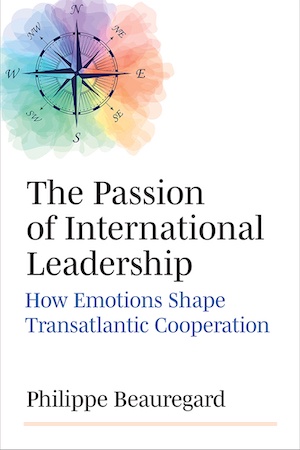Dr Philippe Beauregard has just published a new book titled The Passion of Leadership: How Emotions Shape Transatlantic Cooperation with the University of Michigan Press.
Why do followers go along with international leaders? How do emotions drive policymakers to take the lead and how are they used to convince followers to rally behind their stance? Find out more in Dr Philippe Beauregard’s new book, The Passion of Leadership: How Emotions Shape the Translatlantic Community. The book has just been released with the University of Michigan Press.
The Passion of Leadership brings to light how international leaders are driven by emotional intensity, showing that strong convictions, shared identity, and resonant emotions with followers are crucial. Leadership is not just automatically attributed to the most powerful state, nor is it merely a function of a leader’s personality. Leadership is a complex cooperation process in which the leader and followers align their international positions.
The book challenges conventional wisdom on international leadership, bringing together leadership and emotion research in social psychology and political science to build a new theory, Cognitive Emotional Leadership Theory. It focuses on how leadership emerges in the transatlantic security community for a variety of security issues: the recognition of new states during the breakup of Yugoslavia, peace media during the 2008 war between Russia and Georgia, the adoption of economic sanctions against Russia after the 2014 annexation of Crimea, and over air strikes against the Islamic State in Iraq and Syria.


